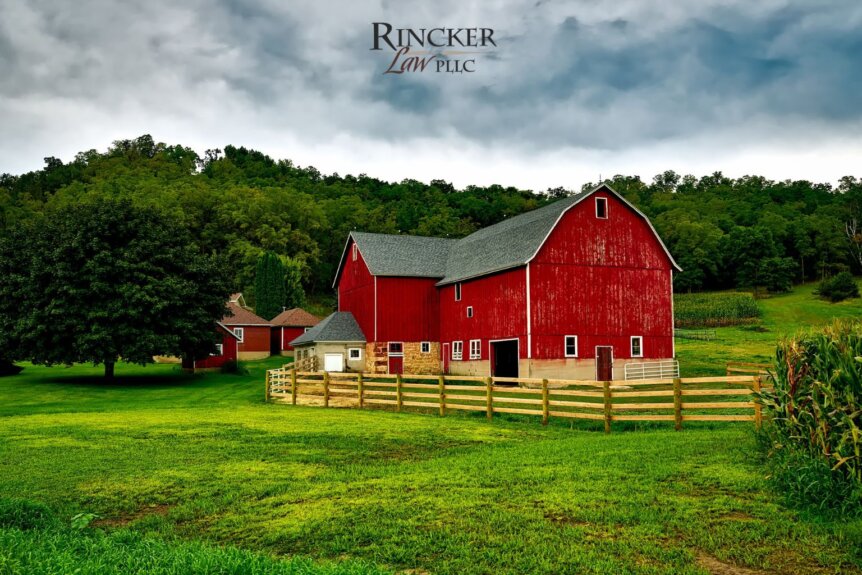Business Structure Options for Farms in Illinois: LLCs, Partnerships, and CorporationsBusiness Structure Options for Farms in Illinois: LLCs, Partnerships, and CorporationsRunning a successful farm is not only about planting crops and raising livestock, but also about protecting your assets and planning for the future. Business structure options for farms in Illinois: LLCs, partnerships, and corporations to protect farmland and operations are among the most important legal decisions farm families make. The right structure can safeguard farmland, minimize liability, simplify succession planning, and improve tax outcomes. The wrong structure may leave your farm vulnerable to lawsuits, creditors, or family disputes.
Why Does Business Structure Matter for Farmers?
In Illinois, many farms begin as sole proprietorships, where one individual owns and operates the farm. While simple, this structure offers no liability protection for personal assets, including the family home and farmland, can be at risk if the farm faces debt or lawsuits.
By choosing a more formal business structure, farmers can:
- Protect personal and family assets from liability
- Provide a framework for multi-generational farm ownership
- Clarify ownership interests among family members or business partners
- Create tax efficiencies
- Improve access to financing or grants
What Is an LLC for Illinois Farms?
A Limited Liability Company (LLC) is one of the most popular business structures for farms in Illinois.
Benefits of an LLC:
- Liability Protection – Shields personal assets from most farm debts or lawsuits.
- Flexibility – Can be owned by one farmer or multiple family members.
- Pass-Through Taxation – Income passes directly to owners and is taxed on their individual returns (avoiding double taxation).
- Succession Planning – LLC membership interests can be transferred to heirs over time, making generational transition smoother.
Example:
A family places their farmland into an LLC. Instead of the land being owned by individuals, it is owned by the LLC. This protects the land if one family member faces personal debt or divorce, while also allowing clear rules for how ownership is transferred.
How Do Partnerships Work in Farm Operations?
A partnership is another option, where two or more individuals share ownership of the farm.
Types of Partnerships:
- General Partnership – All partners share in management, profits, and liabilities. Each partner can be personally liable for debts.
- Limited Partnership (LP) – At least one general partner manages the farm and assumes liability, while limited partners invest but have less control.
- Limited Liability Partnership (LLP) – Partners share liability protection similar to an LLC, but LLPs are less common in farm operations.
Pros and Cons:
- Pros: Simple to set up, flexible profit-sharing, good for joint ventures.
- Cons: Risk of personal liability in general partnerships, and disputes may arise without a strong written partnership agreement.
What About Farm Corporations?
Some Illinois farms choose to form a corporation, either as a C corporation or an S corporation.
C Corporation
- Separate legal entity from its owners.
- Provides strong liability protection.
- Subject to corporate tax rates, with profits potentially taxed twice (once at the corporate level and again on dividends).
S Corporation
- Offers liability protection like a C corporation.
- Avoids double taxation by allowing pass-through taxation.
- Has restrictions on ownership (limited number of shareholders, all must be U.S. citizens or residents).
Corporations may be a good choice for larger farm operations with multiple stakeholders or those seeking outside investment.
Which Business Structure Best Protects Farmland?
The best choice depends on the farm’s size, family dynamics, and long-term goals:
- LLCs are often the best fit for family-owned farms seeking flexibility and liability protection.
- Partnerships can work for smaller operations or short-term ventures but carry more risk.
- Corporations may be better for large-scale farms or when bringing in outside investors.
Farm families often use a combination, for example, holding farmland in an LLC while operating the farm itself through another entity. This can separate land ownership from farm operations, adding another layer of protection.
How Does Business Structure Affect Succession Planning?
Choosing the right structure also simplifies succession planning. For example:
- LLCs allow gradual transfer of membership interests to children or heirs.
- Corporations can transfer shares over time.
- Partnership agreements can outline what happens when one partner retires or passes away.
These structures help reduce disputes and ensure the farm remains intact for the next generation.
FAQs About Business Structures for Farms in Illinois
Do I need a lawyer to form an LLC for my farm?
Yes, it’s highly recommended. While forms are available online, a lawyer can customize the operating agreement to fit your farm’s needs and protect against disputes.
Is an LLC better than a partnership for a farm?
In most cases, yes. LLCs provide liability protection that general partnerships do not.
Can farmland itself be placed in an LLC?
Yes. Many families create an LLC to hold farmland, which helps protect it from creditors and makes generational transfer easier.
Are there tax advantages to forming a corporation?
Sometimes. Larger farms may benefit from corporate tax structures, but many smaller farms prefer the simplicity of LLCs or S corporations.
What happens if we don’t create a business structure?
Without a structure, the farm defaults to a sole proprietorship or general partnership, leaving personal assets exposed to liability.
Protecting Your Illinois Farm with the Right Business Structure
Your farm is more than a business, it’s a livelihood and a legacy. By choosing the right business structure, whether it’s an LLC, partnership, or corporation, you can protect farmland, reduce liability, and ensure your operation thrives for generations.
If you’re ready to explore business structure choices for your Illinois farm, contact Rincker Law PLLC at (217) 774-1373. Our team has decades of experience in both agriculture and business law and can help you design a legal framework that safeguards your land, protects your family, and supports your long-term goals.

